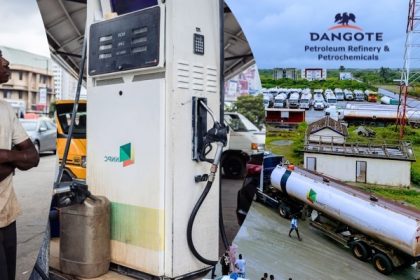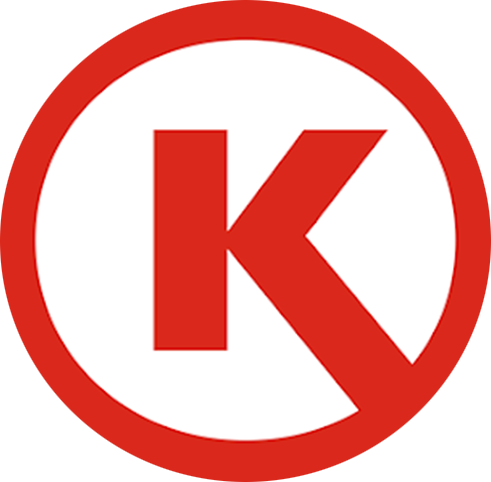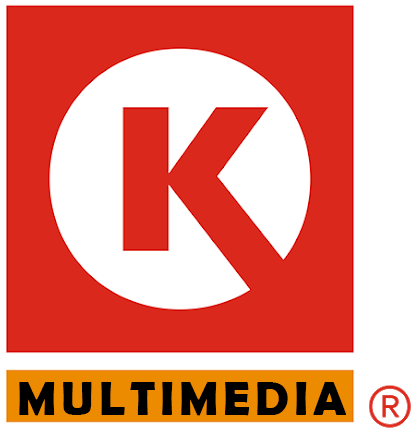
In accordance with the terms of the Petroleum Industry Act (PIA), petrol prices are not set by the government but rather are negotiated directly between parties. The NNPC stressed this point when releasing the estimated prices of petrol obtained from the Dangote Refinery in its retail stations across the nation early on Monday morning.
The NNPC can attest that, as Naira transactions won’t start until October 1, 2024, it is paying Dangote Refinery in USD for the September 2024 PMS offtake.
“The NNPC guarantees that in the event that the quoted pricing is contested, it will be appreciative of any reduction from the Dangote Refinery and will fully distribute any savings to the public.”
In the paper that is attached, the NNPC claimed that, based on the September price template, fuel from the Dangote refinery will sell for N950.22 per litre in Lagos; N960.22 in Oyo; N980.22 in Rivers; N992.22 in Abuja; N999.22 in Kaduna; N999.22 in Kano; N999.22 in Sokoto; and N1,019 in Borno.
According to a breakdown, the Dangote refinery’s final price was N898.78; distribution in Lagos is N15 per litre; inspection fees are N0.97 and N8.99, respectively; and an expected margin of N26.48 is included.
This is happening right after the NNPC gave Nigerians assurances that the loading of refined petroleum products, which started at the Dangote Refinery in Lagos on Sunday, would end the ongoing gasoline shortage and the lengthy lines at gas stations within the next few days.
The national oil firm emphasised that going forward, only market forces will set the pump price of petrol from the refinery, not the NNPC or Dangote Refinery.
Speaking at an interactive session in Lagos over the weekend, Mr. Dapo Olusegun, Executive Vice President, Downstream, NNPC, refuted the notion that the national oil company was impeding the launch of the refinery, which produces 650,000 barrels per day and is owned by Dangote, the richest man in Africa.
Olusegun provided additional commentary on the distribution of petrol productions, stating: “Premium motor spirit is obtained through a process that involves either the gantry at Dangote Refinery or the vessels, and then it is transported to the pump.” Given that we have begun loading items, you may be able to purchase petrol at the pump that same day in certain locations.
During a weekend interactive session in Lagos, Mr. Dapo Olusegun, the Executive Vice President of NNPC’s Downstream division, refuted the rumours that the national oil company was impeding the launch of Dangote’s refinery, which has a capacity of 650,000 barrels per day. Dangote is the richest man in Africa.
“There is a process for getting premium motor spirit from either the gantry at Dangote Refinery or to the vessels and there is a process of taking it from there to the pump,” Olusegun said in response to more questions about the distribution of petrol production. You may therefore be able to purchase fuel at the pump that same day in some locations now that we have begun loading items.
For instance, you will most likely receive the product the same day if a truck loads at the Dangote Refinery and it is headed to a filling station in Epe in Lagos. You won’t anticipate receiving it that quickly, though, if it is travelling all the way to Kano.
“And the supply chain continues even if it is travelling by boat to Calabar before it reaches the vehicles. Hence, it is feasible to arrive at the filling station the same day after loading, but only if it is in the vicinity of the refinery.
Olusegun pointed out that there was no reason why the NNPC would have frustrated the take-off of the privately owned refinery, saying commenters keep forgetting that the NNPC has a stake of 7.25 per cent in the asset.
“Now it wouldn’t make sense for a shareholder to seek to frustrate a company that it has equity participation in. I can tell you that the NNPC has not at any time done anything to frustrate Dangote Refinery. The reverse is the case. NNPC has gone out of its way to support Dangote Refinery, which is what we expect a shareholder to do.
“So, when you talk about delaying Dangote crude cargoes, all of these are business transactions. Some terms and conditions guide every type of transaction and the trade of crude oil and the trade of refined products is a global business.
“The terms and conditions are global terms and conditions and so there are conditions to be met before a cargo of crude can be released. It is standard procedure to hold off on releasing the goods until those conditions are satisfied if they are not met. That’s essentially what it is, then. Thus, it is nothing. We’re both operating businesses, and Dangote is running a company, so it’s nothing personal.
“Every company and every marketer is operating a business. We all agree to the terms and conditions you have.
“It’s just us keeping to the terms and conditions of our business transactions. I can tell you, there’s nothing unfair going on. Everything that’s going on is according to the terms and conditions signed by both parties, and that is the way business should be done,” he explained.
Olusegun, emphasised that with the Petroleum Industry Act (PIA), the national oil company is now a going concern and no longer a corporation that relies on the government for support.
“Today, if the NNPC starts making losses and cannot meet its obligations, the government cannot bail it out, because it will be illegal for the government to do that as it is against the law,” he said.
Responding to a question on the expected amount the NNPC would fix the pump price of petrol to be lifted from the Dangote Refinery, the executive vice president said: “Let’s imagine companies like Total, Shell, NIPCO, can we say that they are the ones to fix the price of petrol? Absolutely no.
“The same thing applies to NNPC. The NNPC is just like any of these businesses. The only difference is that the shares of NNPC are entirely owned by organs of government – Ministry of Finance Incorporated (MOFI) and Ministry of Petroleum Incorporated. That’s the only thing – the shareholders of NNPC.
“So the NNPC is not a regulator. The NNPC has no regulatory powers and cannot fix prices. That’s why citizens must study the PIA to understand that things have changed. I’ve seen that there’s so much misinformation out there, even within government settings, understanding the new NNPC.
“What we’ve done in this specific case with Dangote Refineries is that we went into the room and we negotiated like every other business would do. Dangote comes into the room and says ‘I want this much for my petrol,’ and we say, ‘No, we are paying this amount,’ and we negotiated to come to some agreements, and that is what has happened. So it’s neither we (NNPC) nor Dangote that sets the price. It’s basically the market forces that set the price.
“The price is indexed to the Brent. If the Brent moves up, the price moves up and if the Brent moves down the price moves down. We don’t determine Brent’s price, they don’t determine Brent, it is the market that does,” he added.
Olusegun described the naira-for-crude and naira-for-product arrangement that was approved by the Federal Executive Council (FEC) as a payment solution that would help ease foreign exchange volatility.
He confirmed that: “For the immediate off-take, that is from September 15 to the end of September, we would be paying Dangote in dollars. Why? That is because the crude that Dangote used in producing the petrol that would be taken was paid for in dollars, so it is fair that we buy the product in dollars.
“But from October 1, crude supplied to Dangote and products taken up by us would be paid for in Naira. Here is how it works: It is a zero-sum arrangement. In this instance, for October now, we have reached an agreement to sell 385,000 barrels a day to Dangote Refinery.”

